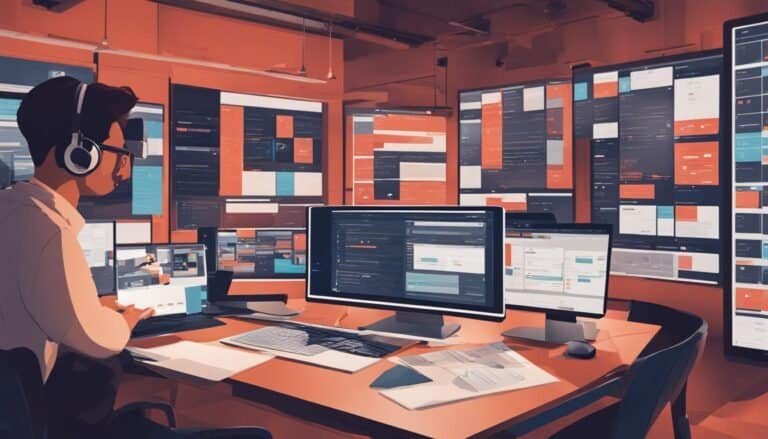Master the Art of Diplomacy: Discover the Essential Diplomatic Skills
Master the Art of Diplomacy: Discover the Essential Diplomatic Skills
Welcome to an insightful guide that will introduce you to the essential skills required for effective diplomacy. Diplomacy is a crucial element in building and maintaining successful relationships, whether personal or professional. In this article, we will explore diplomatic skills in-depth and provide you with practical insights into how to master them. We will start with an overview of diplomatic skills, their definition, meaning, and importance, and then delve into examples of these skills in action and how they are vital for effective communication. Furthermore, we will discuss methods for developing diplomatic skills, the role of these skills in negotiation, and the qualities that make for successful diplomacy. Finally, we will answer some frequently asked questions about diplomatic skills. So let us begin our journey to becoming a master of diplomacy!
Understanding Diplomatic Skills: Definition and Meaning
Diplomatic skills are essential in today’s interconnected world, where conflicts and misunderstandings can arise in both personal and professional contexts. At its core, diplomatic skills involve effective communication, negotiation, and conflict resolution.
These skills are particularly vital for those working in diplomatic services, international relations, or global business. However, they are also valuable for anyone seeking to navigate challenging situations with empathy, tact, and positive outcomes.
Examples of Diplomatic Skills
Let’s take a look at some examples of diplomatic skills in action:
- Active listening: When engaging in conversation, individuals with diplomatic skills actively listen to the other party, seeking to understand their perspective and concerns. They do not interrupt or dismiss the other person’s point of view.
- Empathy and tact: Diplomatic individuals consider other people’s feelings and tailor their communication style to be respectful and courteous. They avoid using aggressive language, even in the face of disagreement or conflict.
- Compromise: Diplomatic individuals understand the importance of finding common ground and reaching mutually beneficial solutions. They are willing to make concessions and seek alternatives that satisfy everyone involved.
- Cultural awareness: Diplomatic individuals have an understanding of cultural differences and how they impact communication and interactions. They take steps to learn about different cultures and adapt their behavior accordingly.
“Diplomatic skills can be the difference between a positive outcome or an impasse in challenging situations. Diplomatic individuals know how to navigate complex situations with grace and respect, while finding ways to reach common ground.”
The Importance of Diplomatic Skills in Communication
Diplomatic skills play a crucial role in effective communication, whether it be in personal or professional contexts. Individuals with diplomatic communication skills possess the ability to convey complex ideas clearly and tactfully, foster understanding even in difficult situations, and maintain positive relationships.
One essential diplomatic writing skill is the ability to use formal language appropriately. Diplomatic correspondence often requires the use of formal language due to its sensitive nature. Additionally, understanding cultural sensitivities and diplomatic protocols are crucial for successful diplomatic communication.
Diplomatic communication is not just about words. Nonverbal cues such as gestures, facial expressions, and tone of voice are also significant in communication. Diplomatic communicators must have an awareness of both their own and others’ nonverbal cues, ensuring that their messages are not misinterpreted.
Overall, diplomatic communication skills are essential for building trust, promoting cooperation, and achieving successful outcomes in a wide range of environments.
Developing Diplomatic Skills: Training and Techniques
In order to master diplomatic skills, it takes practice and dedication. Fortunately, there are many training programs and techniques available to help individuals develop these essential skills.
Training Programs
One effective way to develop diplomatic skills is through training programs specifically designed for this purpose. These programs may be offered by universities, private companies, or even government agencies.
| Training Program | Description |
|---|---|
| Diplomatic Academy of the United States | A training program run by the US State Department that provides courses on diplomatic skills, including negotiation, language training, and cultural awareness. |
| The Art of Diplomacy | A course offered by the Harvard Kennedy School that covers the history and practice of diplomacy, with an emphasis on negotiation and conflict resolution. |
| International Negotiation and Conflict Resolution | A program run by Columbia University that focuses on negotiation skills and conflict resolution in international settings. |
Practice Exercises
In addition to formal training programs, there are many exercises that individuals can do on their own to develop diplomatic skills. These exercises may include:
- Role-playing exercises, where individuals practice negotiating and communicating in different scenarios;
- Mock debates, where individuals must argue from multiple perspectives and find common ground;
- Active listening exercises, where individuals must listen attentively and respond thoughtfully to others’ perspectives and concerns.
By practicing these exercises regularly, individuals can hone their diplomatic skills and become more effective communicators and negotiators.
Self-Reflection
Finally, self-reflection is an important aspect of developing diplomatic skills. Individuals should take the time to analyze their own communication and negotiation styles, as well as their strengths and weaknesses in these areas.
“Diplomacy is the art of letting someone else have your way.” – Daniele Vare
By recognizing areas where they need improvement and working to address these areas, individuals can become more effective diplomats and achieve greater success in both personal and professional settings.
The Role of Diplomatic Skills in Negotiation
In any negotiation process, diplomatic skills play a crucial role in achieving mutually beneficial outcomes. Here are some essential diplomatic negotiation skills:
| Diplomatic Negotiation Skills | Description |
|---|---|
| Active Listening | Being attentive and empathetic to the other party’s concerns and interests |
| Compromise | Finding common ground and reaching agreements that benefit both parties |
| Patience | Maintaining composure and not rushing to conclusions or decisions |
| Problem-solving | Offering creative solutions that address the underlying issues and interests of both parties |
Effective diplomatic negotiation requires a delicate balance of assertiveness and flexibility, as well as the ability to manage emotions and maintain a positive atmosphere.
How to Develop Diplomatic Negotiation Skills
Practice is key to developing diplomatic negotiation skills. Role-playing exercises, simulation games, and formal training programs can help individuals hone their skills and gain confidence in their ability to negotiate effectively.
It’s also vital to engage in self-reflection and seek feedback from others, as well as to study successful models of diplomatic negotiation in action. By cultivating a growth mindset and a willingness to learn and adapt, anyone can improve their diplomatic negotiation skills and become a more effective negotiator.
Diplomatic Qualities and Skills for Successful Diplomacy
In addition to specific diplomatic skills, there are also certain qualities that are essential for successful diplomacy. These attributes enable individuals to approach their work with professionalism, cultural sensitivity, and strategic thinking. The following are some of the key diplomatic qualities and skills:
| Diplomatic Qualities | Diplomatic Skills |
|---|---|
| Cultural Awareness: Knowledge of different cultures, customs, and traditions to navigate cross-cultural interactions effectively. | Effective Communication: The ability to convey complex ideas and actively listen to others, promoting mutual understanding and respect. |
| Emotional Intelligence: The capacity to recognize and manage one’s own emotions and those of others, promoting empathy and conflict resolution. | Negotiation: The ability to find common ground and reach mutually beneficial agreements. |
| Adaptability: The ability to adjust to new situations and changing circumstances, promoting flexibility and innovation. | Strategic Thinking: The capacity to think critically and creatively, identifying opportunities and potential challenges to achieve long-term goals. |
These qualities and skills are interrelated and complement each other in diplomatic work. Together, they enable individuals to build positive relationships, foster collaboration, and achieve successful outcomes in various contexts.
Diplomatic Writing Skills: Navigating Diplomatic Correspondence
Writing style is crucial in diplomatic communication. Diplomatic writing skills require a distinct formality, cultural sensitivity, and adherence to protocol that can be quite different from typical business or personal communication. When navigating diplomatic correspondence, keep in mind these key elements:
- Formality: Diplomatic writing is highly formal. This means using proper titles, avoiding contractions and colloquial language, and using structured and precise sentences.
- Cultural sensitivity: It is essential to be aware of cultural differences when communicating with people from different countries. Avoid making assumptions or generalizations about other cultures, and be respectful of their customs and traditions.
- Protocol: Diplomatic communications often have strict protocols that must be followed. Familiarize yourself with the appropriate protocols for the situation, whether it involves a formal letter, invitation, or email.
- Clarity: While diplomatic writing may emphasize formality, it is still important to be clear and concise. Avoid using overly technical language or jargon, and ensure that your message is easily understood by the intended recipient.
- Emotion: Diplomatic writing should avoid overt displays of emotion, such as anger or frustration. Instead, use language that is neutral and objective, while still conveying your message effectively.
By keeping these elements in mind, you can navigate diplomatic correspondence with confidence and clarity.
FAQs about Diplomatic Skills
Q: Are there any PDF guides available for developing diplomatic skills?
A: Yes, many resources for developing diplomatic skills exist in the form of PDF guides. These guides often offer practical tips, exercises, and case studies to help individuals master the art of diplomacy.
Q: How can I indicate my diplomatic skills on a resume?
A: Including diplomatic skills on a resume can be a valuable addition, particularly for individuals seeking roles in diplomacy, government, or international relations. It is recommended to highlight diplomatic skills in the skills section of the resume, along with other relevant skills and experiences.
Q: Do diplomatic skills have cross-cultural relevance?
A: Yes, diplomatic skills are relevant across cultures, as they involve effective communication, conflict resolution, and relationship-building. However, it is important to be aware of cultural nuances and differences when applying diplomatic skills in diverse contexts.
Q: What are the key diplomatic skills required for effective negotiation?
A: Diplomatic negotiation skills involve active listening, empathy, compromise, finding common ground, and strategic thinking. These skills are essential for achieving successful outcomes in diplomatic negotiations.
Q: What are some signs that I may be lacking diplomatic skills?
A: Some signs that an individual may be lacking diplomatic skills include difficulty navigating conflict, ineffective communication, insensitivity to cultural differences, and a lack of empathy. Developing diplomatic skills can help address these challenges.
Q: What does “diplomatic skills” mean in Tamil?
A: The meaning of diplomatic skills in Tamil may vary depending on the specific translation or usage. However, the general concept of diplomacy and effective communication is likely to be expressed in some form.
Conclusion
Diplomatic skills are essential for success in both personal and professional settings. By mastering the art of diplomacy, individuals can effectively communicate, negotiate, and resolve conflicts with empathy, tact, and mutual understanding. Developing these skills requires practice, training, and self-reflection, but the benefits are invaluable.
Remember to always consider the different cultural contexts and protocols when using diplomatic skills, and don’t be afraid to seek guidance or resources when needed. With dedication and effort, anyone can become a master of diplomacy.
References
Our article is based on research and information provided by the following sources:
- U.S. Department of State. (2021). Diplomatic Skills Training Programs. https://www.state.gov/professional-development-training/diplomatic-skills-training-programs/
- Foreign Service Institute. (n.d.). Skills of a Diplomat. https://www.state.gov/skills-of-a-diplomat/
- International Relations Institute of Cameroon. (2016). The Importance of Diplomatic Skills for Diplomats. https://iric-institute.org/the-importance-of-diplomatic-skills-for-diplomats/
- Carnegie Endowment for International Peace. (2019). The Importance of Diplomacy. https://carnegieendowment.org/2019/09/11/importance-of-diplomacy-pub-79726
- Global Diplomacy Lab. (2019). Understanding Diplomatic Negotiation: A Starting Guide. https://global-diplomacy-lab.org/fileadmin/user_upload/understanding-diplomatic-negotiation-a-starting-guide.pdf
FAQs about Diplomatic Skills
Q: Is there a downloadable guide or PDF available on diplomatic skills?
A: Yes! There are many resources available online that provide downloadable guides and PDFs on diplomatic skills, including tips and strategies for developing them.
Q: How can I indicate my diplomatic skills on my resume?
A: Consider incorporating specific examples of diplomatic situations you have successfully navigated in the past, highlighting skills such as active listening, empathy, and conflict resolution. Including relevant certifications and training courses can also be helpful.
Q: I often struggle with understanding cultural sensitivities. How can I develop this skill?
A: One effective way to develop cultural awareness is to intentionally expose yourself to different cultures and perspectives. This could involve reading books by authors from different backgrounds, seeking out mentorship from individuals with different cultural backgrounds, or participating in cultural exchange programs.
Q: I’ve been told that I lack diplomatic skills. What can I do to improve?
A: Recognizing that you need to improve your diplomatic skills is an important first step! Consider seeking out training programs or coaching sessions that focus specifically on developing these skills. Practice exercises, role-playing scenarios, and self-reflection can also be helpful in improving your diplomacy.
Q: What are some key diplomatic skills to have?
A: Key diplomatic skills include effective communication, active listening, empathy, conflict resolution, cultural awareness, strategic thinking, and adaptability. These skills are essential for successful interactions in all areas of life, from personal relationships to international diplomacy.
Q: What is the importance of diplomatic skills in specific cultural contexts, such as in India?
A: In India, as in many other cultures, diplomatic skills are essential for successful interactions, particularly in hierarchical and collectivist contexts. Developing a nuanced understanding of cultural sensitivities and communication styles can help individuals navigate complex social and professional situations with greater ease and success.






